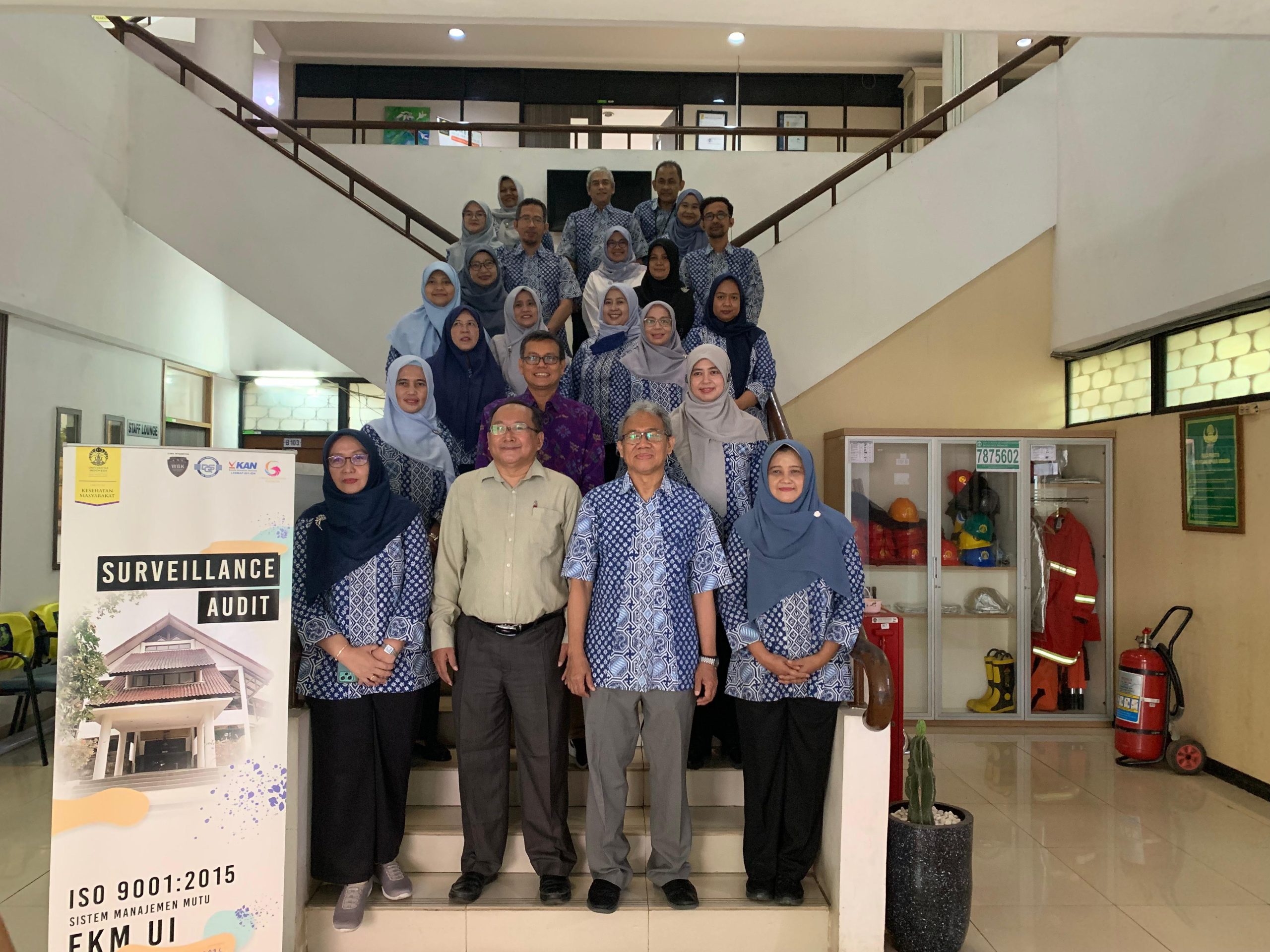From November 19 to 20, 2024, the Faculty of Public Health (FPH) at the Universitas Indonesia (UI) conducted a surveillance audit as part of the maintenance of its ISO 9001:2015 Quality Management System certification. The purpose of the audit was to ensure that FPH UI continues to meet the established quality standards and to implement continuous improvements in its management system.
The surveillance was led by Lead Auditor Hariadi Alim, an auditor from DQS Indonesia. Using the ISO 9001:2015 standard, the audit assessed the extent to which FPH UI has implemented an effective quality management system across various operational aspects, including planning, execution, monitoring, and evaluation of academic activities and services provided.
This ISO 9001:2015 surveillance also emphasized the principle of continuous improvement, which is the core of the ISO quality management system. FPH UI is expected to continuously identify opportunities for improvement, enhance stakeholder satisfaction, and achieve higher goals in the quality of public health education services.
At the opening meeting, the Dean of FPH UI, Prof. dr. Mondastri Korib Sudaryo, M.S., D.Sc., emphasized the importance of undergoing the ISO 9001:2015 surveillance audit. “With deep gratitude, we at FPH UI are honored to undergo the ISO 9001:2015 surveillance audit process as part of our commitment to continuously improving the quality of service and quality management within the academic and administrative environment. This process is not only a crucial step in maintaining international standards but also reflects our dedication to making the best contribution to the development of public health sciences. We thank all parties who have actively participated in this process and hope that the results of this audit will further strengthen FPH UI’s position as an excellent and trusted educational institution,” said the Dean of FPH UI in his remarks.
During the two-day audit, led by Hariadi Alim, interviews, document reviews, and observations were conducted to assess the implementation of the quality management system at FPH UI. This process involved the faculty leadership and work units under the Faculty Administration Center (PAF).
The results of the surveillance audit showed that the management of Lost and Found items and the management of Item Disposal were implemented very well and in accordance with the ISO 9001:2015 standards, which was one of the strengths in FPH UI’s quality management system. Additionally, identified opportunities for improvement (OFI) will be evaluated and/or addressed internally by PAF FPH UI and incorporated into the continuous improvement process, where deemed beneficial. Meanwhile, a review to verify the implementation and effectiveness of actions taken on the OFI will be conducted during the next audit, Audit Surveillance #2, scheduled for 2025, to ensure that the improvements made comply with applicable standards.
It is hoped that after this audit process, FPH UI will continue to improve the quality of services and meet the expectations of stakeholders, both in terms of educational services and research in the field of public health.
Through the implementation of the ISO 9001:2015 surveillance audit, FPH UI demonstrates its commitment to maintaining high-quality standards and continues striving to be an adaptive educational institution in response to the changing demands of the times. The ISO 9001:2015 certification previously achieved serves as evidence that FPH UI has a solid and effective quality management system, and this surveillance is part of the ongoing effort to maintain and enhance that system.
FPH UI hopes to continue maintaining this certification, which not only symbolizes quality but also serves as a tool to provide better and more beneficial services to the wider community. Moving forward, FPH UI will continue to focus on innovation and development to improve the quality of education and research that can positively impact the world of public health. (wrk)

